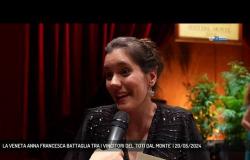Genoa is not Bari, overwhelmed two months ago by the initiative of the minister Matteo Piantedosi and then by a flurry of intertwined investigations. And not even Turin, where the scandal broke out a few weeks later around the interests that grew up along the Turin-Bardonecchia motorway. Justice will have to confirm the clear feeling of these hours that the Ligurian Tangentopoli is something much more deep-rooted and structural, but in the meantime the stories of corruption reconstructed by the thousands of pages of the prosecutors’ offices of the three capitals have something in common even worse than the corruption dynamics itself : the price, often from sale. Mini-packages with a few dozen or hundreds of votes, free passes at the toll booth or daily passes for skiing; and then food, avalanches of food, including dinners at the restaurant, aperitifs on the beach in Monte Carlo, up to a wedding buffet. Is the common good given up in exchange for personal interests really worth so little?
The question may sound naive, but this is precisely where the deepest wells are poisoned. And it is here that these events risk widening the gap – at least the perceived one – between “ordinary” people and politicians, between society and institutions. With two fatal outcomes: more abstentionism and less and less willingness to dedicate time and energy to the common good. The nuances are different, but these days in Bari, Turin and Genoa, speaking with those who live there, with that part of civil society most sensitive to politics and most involved in pre-politics, one can feel a bit of surprise, a lot of indignation and a mix of concern for what all this will leave behind. But not resignation: «It can’t all be like this, it’s not all like this», says Monica Del Vecchio, who has been president of the Catholic Action of Bari for just two months, a role that «at this moment in my life seems a bit like a challenge”, she wrote on the diocesan web page, talking about her mother’s other commitments and work. She still believes in the “Bari spring” «because the social fabric is alive and lively, the air is good, there is energy», she says. The corruption? “We will see. I only know that among young people I see a greater desire to commit and take a position on issues such as peace and legality, and this also happens among those who are not even 18 years old.”
In Genoa, however, the feeling is that so far only the tip of an iceberg has emerged, the size of which few can see, but which has not taken everyone by surprise and is pushing many not to expose themselves. «We expected it, it was in the air», says Chiara Volpato, president of Acli Liguria and former coordinator of Libera. Why? «Too many resources diverted to spot initiatives, of only form and zero impact for citizens. And in the meantime, healthcare, infrastructure and the landscape paid the price.” «First the pesto, then the focaccia, Genoa in recent years has become a village festival, rather than the capital of culture» adds Maria Pia Bozzo, with a long militancy behind her in the DC, then in the Council of Municipalities and Regions of Europe and today president of the Aldo Moro cultural club: «Here in Genoa we are experiencing one of the last stages of that cultural degradation that began 30 years ago at a national level and which can only be fought with a return to study, to training: there is no we improvise as administrators. It is no coincidence that those who govern are often the expression of potentates rather than visions.”
The fact is that even in civil society, including the Catholic laity, “in the face of a vitality that remains palpable, new figures are struggling to emerge, there is a clear leadership problem”. Reason? «We come from long seasons of conformism, which often clipped the wings of those who could emerge». And politics has not helped: «The social fabric has not lost vitality, on the contrary – reasons Volpato – But it has seen all contacts with the institutions dry up: they don’t listen to us, they don’t receive us». In the axis that is missing and must be rebuilt, between institutions and civil society in its organized forms, there is the key point for Annamaria Furlan, Genoese, secretary of the CISL until February 2021 and today senator of the Democratic Party. But she doesn’t necessarily make it a question of sides: «In Genoa, but not only, politics needs to be regenerated. And only associations, movements, unions can do it. It is a question of courage, but also of spaces and mutual recognition: we cannot remember civil society only when we are in an election campaign, we need real involvement that can bring institutions and politics closer to all the worlds which, in fact , they are pre-political” he says, making a real appeal “to all those energies that I still see in the city: it’s time to reset and mobilize for a change of people but also of dynamics”. In which there is also an intermediate space between the micro and the macro, “a place to create a synthesis between particular interests and the common good”, reasons the deputy mayor of Turin (a past of commitment to the Catholic laity) Michela Favaro, on the return train from Rome, where the birth rate was for the States General: «The intermediation of political thought is missing, be it a party or even just a civil society that knows how to form itself». In practice, there is a lack of a network that can first push and then support, “and without which it is obvious that those who administer feel alone: it is up to us to find spaces for mediation, which will inevitably not satisfy everyone”.
In exactly one month we will vote for the European elections, the first thermometer – with turnout even before the results – of the state of health of civil society. Falling into “easy moralism” is a given, as the Archbishop of Bari, Giuseppe Satriano, warned a few days ago in the letter sent to the city for the feast of Saint Nicholas. But it is a way of limiting oneself to the present, if not to the past. And instead, for a different future there is «the need for people capable of bold projects and not easy promises; men and women, witnesses of a life given, not tied to partisan interests and speculation, who know how to bestow trust and hope for all and not guarantees for a few”. Priceless values.




